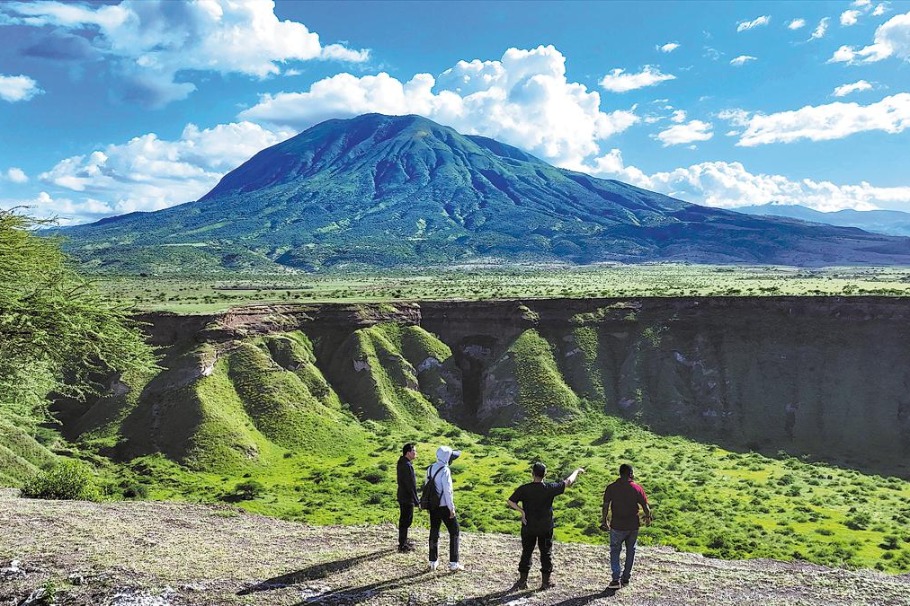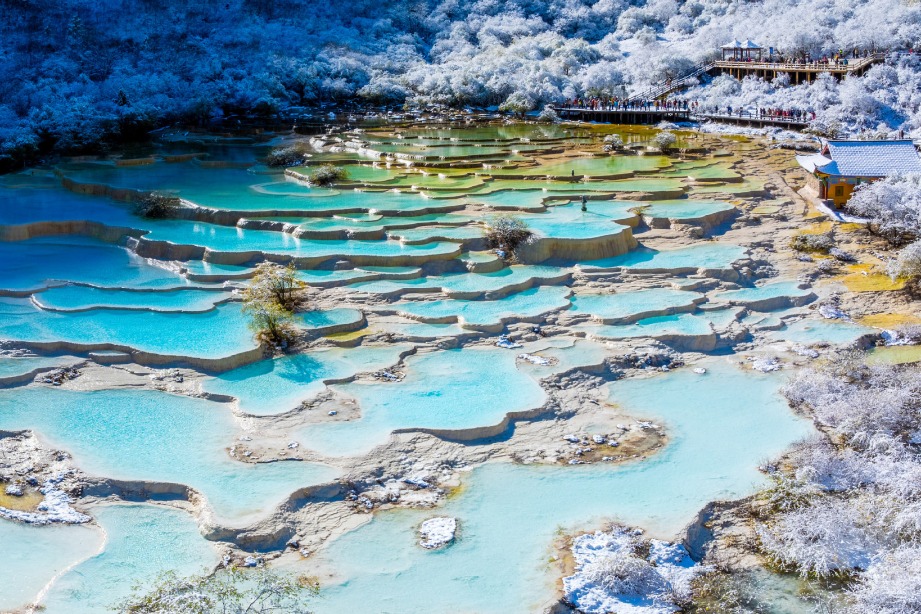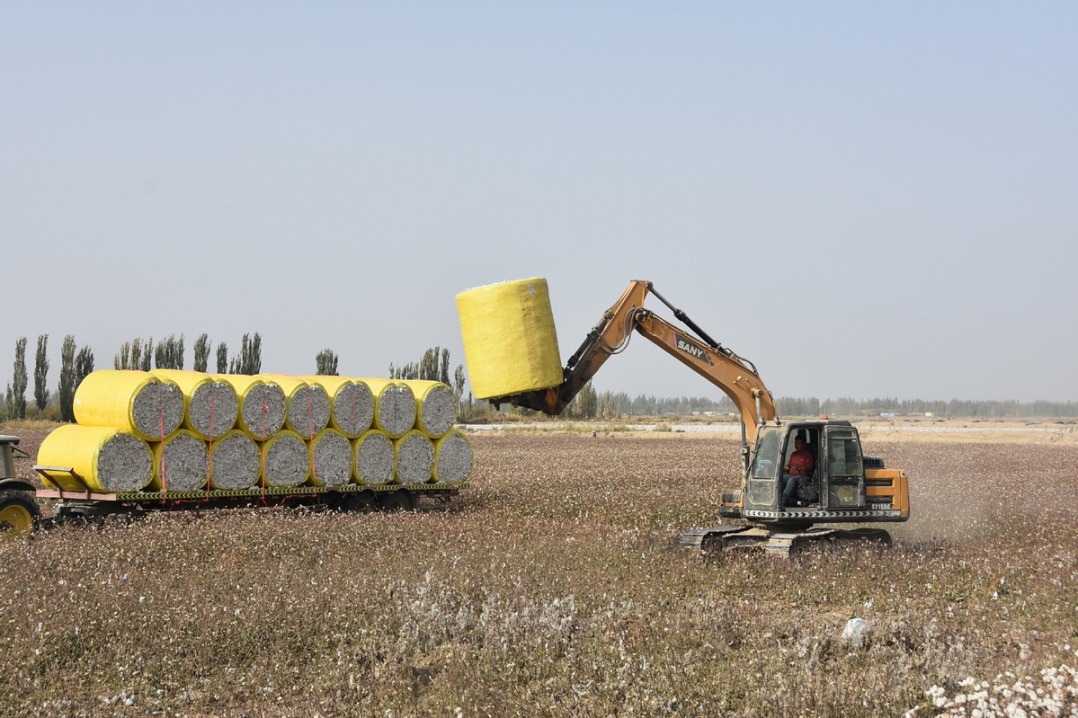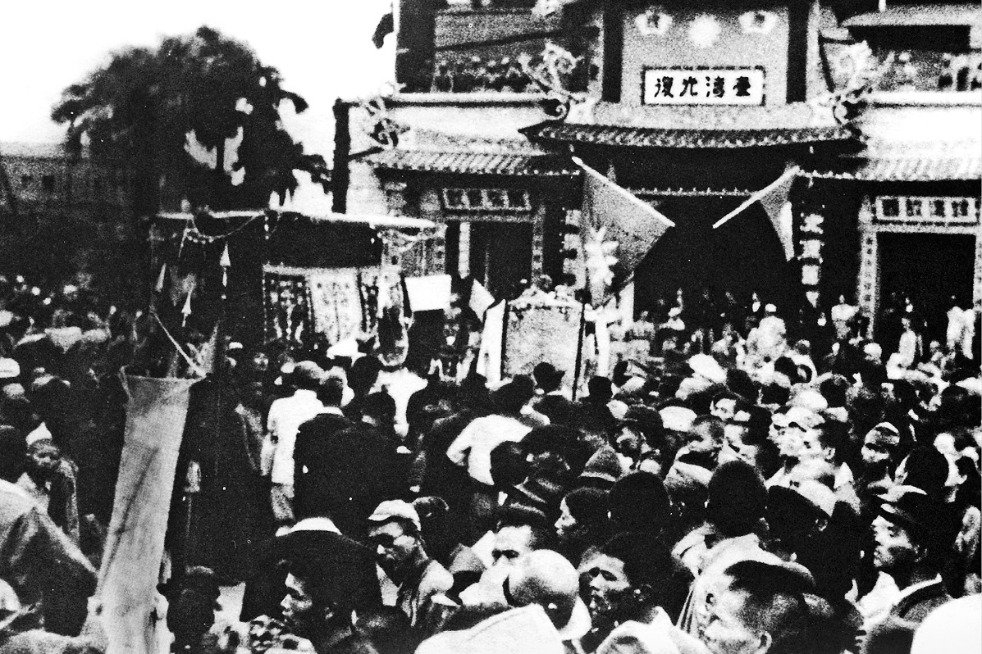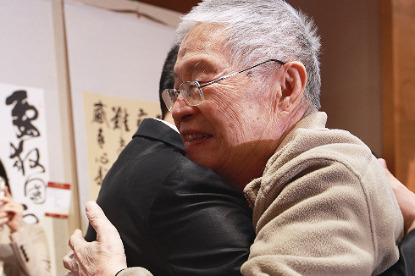Restoration anniversary observed
Taiwan people called on to embrace their Chinese identity, reunification

At 73, Shaw Kai-ping spoke with a proud expression on his face as he recalled being shocked to tears at age 8 when he first read about his father's involvement in the anti-Japanese war in a book.
His mother had told him that, despite the negative portrayal of his father's story in Taiwan's books at that time, their actions were a matter of great pride.
They had gone to the mainland to join the resistance against Japanese aggression and had narrowly escaped death. They also embraced Communist ideology during that time, Shaw said.
Taiwan's restoration to China was a crucial chapter in the Chinese People's War of Resistance Against Japanese Aggression (1931-45). The surrender of Japan in 1945 marked the end of 50 years of colonial rule and Taiwan's return to its motherland.
Shaw shared his family's poignant stories on Thursday in Beijing during a forum themed on commemorating the 80th anniversary of Taiwan's restoration. The event was organized by the Central Committee of the Taiwan Democratic Self-Government League, a participating political party on the Chinese mainland.
"We must bring to light the shared memories of the anti-Japanese aggression efforts across the Taiwan Strait," Shaw emphasized. "We share the same language, ethnicity and heritage. It is essential for the youth in Taiwan to reflect on this history. History must not be forgotten."
Shaw stressed the importance of educating young Taiwan residents about their origins, stating: "Without Taiwan's restoration, there would be no return of its sovereignty. It is crucial to teach them that Taiwan is an integral part of China."
Shaw Kai-ping's father, Shaw Daoing, was born in Japanese-colonized Taiwan in 1916. Shaw said that even though colonial indoctrination was prevalent at the time, his father was raised on hushed stories of their ancestors' resistance.
In 1940, Shaw Dao-ing and his wife went to the mainland to join the war, where he used his medical training to serve as a front-line medic for Chinese troops. They did not return until 1945.
As he matured, Shaw gradually understood the magnitude of his parents' sacrifices.
"Our nation has endured a difficult history, but it is gradually becoming stronger. This serves as a reminder to persevere until the end," he reflected.
Shaw remarked on the irony of Taiwan's past "Japanization" during occupation and its current "de-Sinicization" efforts by the current Democratic Progressive Party authorities. He expressed concern that external influences have eroded Taiwan's national will and dignity, underscoring the need to educate Taiwan's residents to proudly embrace their Chinese identity.
Since his first visit to the mainland in the early 1990s, Shaw has actively engaged in cross-Strait exchanges for over 30 years, witnessing the mainland's growing strength. He is confident that continued progress will lead to the inevitable reunification of the two sides, and the various manipulations by the Taiwan authorities cannot stop the trend.
Chi Hsing, president of The Observer magazine in Taiwan who has participated in cross-Strait academic exchanges for over two decades, noted that this year's forum held special significance as it marked the 80th anniversary of Taiwan's restoration.
"Every year, I am deeply moved by the anniversary, recalling historical records of Chinese accepting Japan's surrender and Taiwan's return to China's territory," Chi said. "The relentless resistance of Taiwan's compatriots was a crucial part of China's victory in the war."
In early September, Chi, along with dozens of leaders of Taiwan's political parties and many scholars, including descendants of fighters against Japanese aggression, proposed designating Oct 25 as Taiwan Restoration Day on the mainland.
"This is a recognition of the patriotic spirit of our Taiwan forebears who fought against Japanese aggression," Chi stated.
Chi emphasized that Taiwan's compatriots once stood with all Chinese people in times of national crisis. Looking ahead, the goal is complete national reunification and the great rejuvenation of the Chinese nation.
"Taiwan compatriots must play a more active role and have a greater impact. True restoration will come after complete national reunification," she said.
Huang Ching-hsien, a professor at Nankai University in Tianjin, stressed that Taiwan's restoration is not just a Taiwan matter, but also a Chinese one that should be proudly shared with the world.
Huang reiterated that Taiwan's status as part of China was confirmed by international law after Japan's surrender.
"Through the experience of Taiwan's restoration in 1945, we must further promote Taiwan's true restoration by working together with the mainland to create a bright future for Taiwan," he said.
yangzekun@chinadaily.com.cn

















